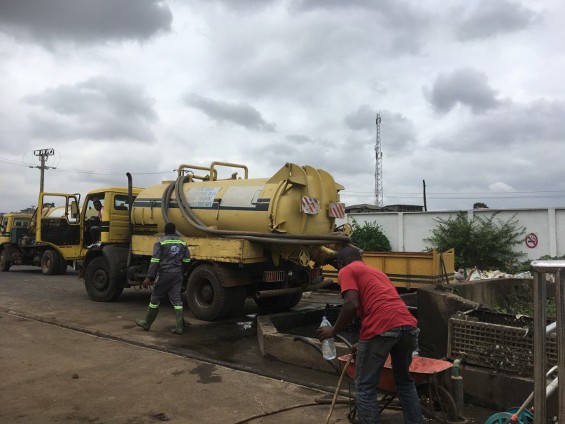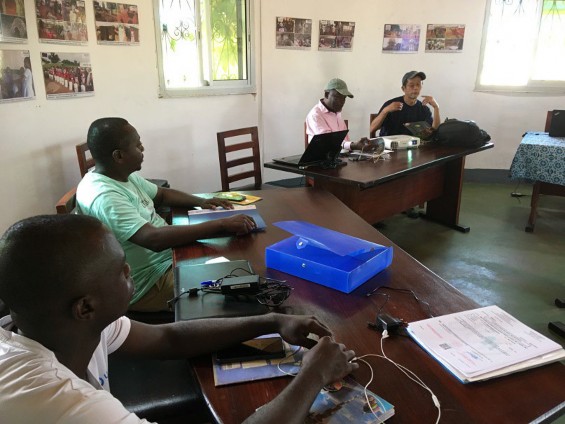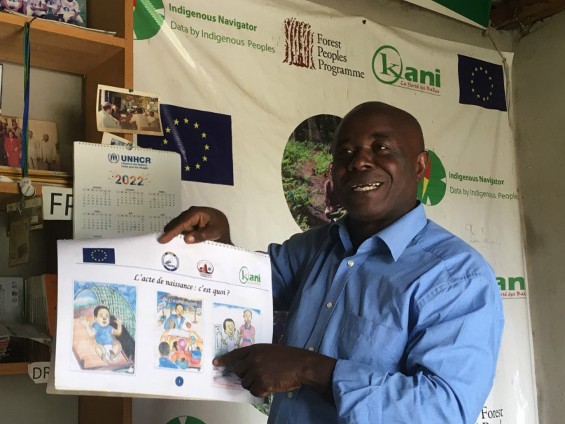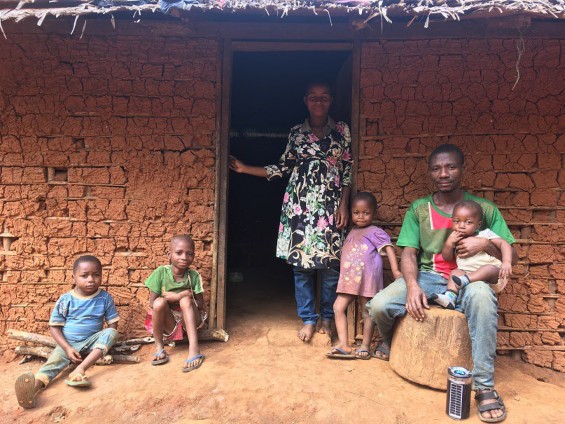Report on the Dispatch to Cameroon: Exploring the Potential of Scientific Research (S)
Koji Hayashi
Specially Appointed Research Fellow
The Center for African Area Studies
Kyoto University
From August 25 to September 10, 2022, I traveled to the Republic of Cameroon to visit 1) the University of Yaoundé 1 and the NGO Tam-Tam Mobile in the capital Yaoundé, and 2) the NGO mutcare and the Association Okani in Bertoua, the capital of Eastern Province. In Lomié, a city in the Eastern Province, I conducted fieldwork in a Baka Pygmy (hereafter referred to as “Baka”) community living on the outskirts of the city, visited the local NGO ASTRADHE, collected and shared information related to project planning and management, exchanged opinions, and presented research in various locations.
This was the first trip to Cameroon in two and a half years since the 19-COVID pandemic, but the impact of the coronary disaster had subsided in all areas, and all counterparts/stakeholders welcomed me with open arms. The details are as follows.
1) Yaounde, the capital city of Cameroon
Prof. Antoine Socpa
Prof. Antoine Socpa, anthropologist at the University of Yaoundé I, is the Cameroon side counterpart of this project. He met with me for the first time since 2018. I exchanged views on the possibility of field research on the contact zones between hunter-gatherer and agro-pastoralist in Cameroon.
Tam-Tam Mobile (NGO)
Tam-Tam Mobile is an NGO that promotes hygiene and supports livelihood improvement mainly in slum areas in Yaoundé. The representative, Mr. Simon-Pierre Etoga, has been building a friendly relationship with Japanese researchers since the 1990s, and he also has a wide network of contacts in various fields in Cameroon due to his background as a journalist. I have been working with him on sanitation and hygiene issues in the slum areas of Yaoundé, as well as the situation of the city’s manure pumping cooperatives, through the Sanitation Project of the Research Institute for Humanity and Nature (RIHN), Japan. During this stay, I held a seminar with our counterparts in the sanitation project (*RIHN and KAKENHI), Associate Professor Serge H.T. Zebaze (Ecology) and Professor Ngnikam Emmanuel (Environmental Engineering; also E-R-A Cameroon Coordinator) of the University of Yaoundé I, and discussed the sanitation issues in the slum areas of Yaoundé. We also discussed the situation in Cameroon, especially with regard to the Corona Disaster, and agreed to hold an international workshop on sanitation in Yaoundé city in August/September next year (2023).

In addition, Mr. Simon-Pierre led the group on a tour of a human waste treatment plant that was constructed last September with the support of the Melinda Bill Gates Foundation and others. In District 6 area, where a joint survey is being conducted in the slum area of Yaoundé, I met with Mr. Mvilongo Tsala, the head of the district, and asked him about the situation and current status of the area in the Corona Disaster.
Professor Ndje Ndje Mireille, a psychologist at the University of Yaoundé I, whom I was introduced through Mr. Simon-Pierre’s personal connections, has experience in research on children, and although we were unable to contact him during our trip, I expect to obtain information on research methods for children in Baka in the future.
2) Eastern Province, Bertoua, the provincial capital
Mutcare (NGO)
Mutcare is a NGO based in Bertoua and has been promoting sanitation in rural areas in the Eastern Province. In the village of Nkoual, where Charles Zobome, the representative of mutcare, is the village head, Mutcare has promoted the use of toilets in the village, including the construction of a toilet attached to the elementary school, and constructed toilets in the village.
I checked the current status of the pilot site, which aims to make effective use of a former toilet site called “fruit-toilet”. The participants also exchanged opinions on the continuation of future collaboration and received field information on the contact zone between the Baka Pygmies and neighboring farmers. We have also requested mutcare to participate in the international workshop scheduled for next year.

AssociationOkani (NGO)
The Association Okani (“Okani”), based in Bertoua, has supported the indigenous rights and culture of the Baka Pygmies in the Eastern Province. And its president, Mr. Benant Messe, and advisor Mr. Charles Jones Nsonkali have built a cordial relationship with Japanese researchers for more than 20 years. We exchanged views while receiving reports on “ideal toilets” for Baka at several research sites. The construction of toilets and their subsequent impact on the Baka community in Lomié, described below, is ongoing with the support of Mr. Charles and others. Okani and mutcare are located near each other and have worked together on several projects. Okani has a different approach to contact zones and has more field information for children than mutcare. We have also requested Okani to participate in the international workshop scheduled for next year.

3) Eastern Province, Local City of Lomié
Settlements of Baka (Adjela, Sissoh, Mokongo-wa-ya)
There are three Baka settlements in the suburbs of Lomié. All of them differ in terms of their location, population size, and distance from the surrounding farming population.
The main objective of this survey was to understand the current situation after February 2020 as the first survey after the Corona disaster in the sanitation project. In reality, the visit of outside researchers including me and Okani members, who had been supporting the project, was delayed by the Corona disaster, and frankly speaking, little progress was made in improving the sanitation situation, including toilets constructed by Baka himself. However, there were some cases in which the visitors used the toilets that had been constructed, but many issues were highlighted in terms of sanitation, safety, and privacy.

In line with the future research theme of the project of Scientific Research (S), I confirmed the groundwork for prompt and intensive observation according to the living environment and infant census in each settlements.
ASTRADHE (NGO)
ASTRADHE (L’Association pour la Traduction, l’Alphabétisation, et le Développement Holistique de l’Etre Humain; The Association for Translation, Literacy, and Holistic Human Development) is a local NGO based in Lomié that aims to support the integrated development of Baka. Specifically, it aims to improve the living conditions of vulnerable communities through education and sustainable development for future generations (*from brochure). I have been friends with the representative, Ms. Brigitte Anziom, since 2017 and has been provided with much information about the Baka community based in Lomié. In recent years, they have been collaborating with a Canadian NGO on educational activities for pre-school Baka infants (Anzion et al. 2021), and since these activities are close to the theme of the Scientific Research (S), I asked for further cooperation.
【参考】 Anziom, B., Strader, S., Sanou, A. S., Chew, P. (2021) “Without Assumptions: Development of a Socio-Emotional Learning Framework That Reflects Community Values in Cameroon” Frontiers in Public Health Vol.9, https://www.frontiersin.org/articles/10.3389/fpubh.2021.602546/full
